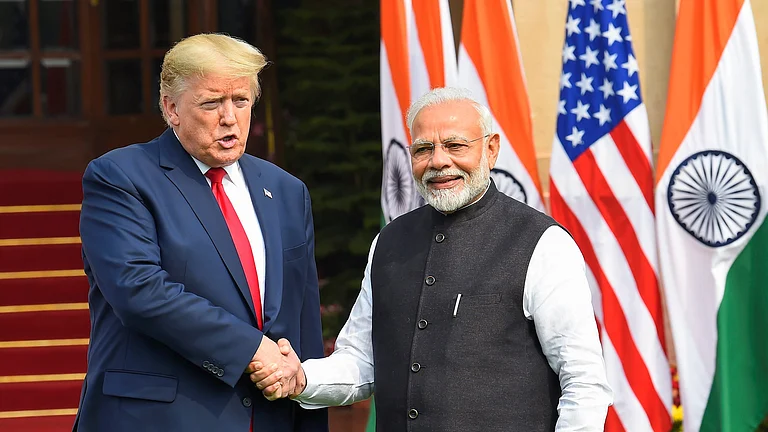With early voting underway in the United States, the two presidential candidates - Kamala Harris and Donald Trump - have revealed their economic plans for the next four years.
Former president Trump and Vice President Harris are locked in a tight race to the White House. Ahead of the final polling on November 5, here is a look at the economic proposals put forth by the candidates.
US Elections 2024 - Economic Approach
Donald Trump And 'Manufacturing Renaissance'
Former US President Donald Trump has pushed towards a "manufacturing renaissance" for the United States. As per Trump, if elected, he would focus on bringing more foreign companies to relocate and invest in the US.
By offering incentives such as low taxes and minimal regulatory hurdles, Trump vowed to bring in an exodus of business from allies such as Germany, South Korea and even rival China.
"We will take other countries' jobs," Trump announced in Georgia, adding "We’re going to take their factories.” He added that this move will not only help foreign companies settle in the US but also open up jobs for American workers.
However, Trump warned that only those companies which plan to move to the US will be able to enjoy the incentives, those which do not relocate, will continue to face high tariffs.
The former president also promised US-based manufacturers tax breaks for research and development. Trump also added he will cut corporate tx down to 15 percent for companies who are making their goods and products in the US.
Kamala Harris And 'Taxing The Rich'
Vice President Kamala Harris has announced that she would focus on tax cuts, especially for the middle and lower class and focusing towards increasing the taxes for the rich.
Harris has proposed a minimum 25 percent tax on people with wealth over $100 million, including those with unrealised capital gains.
Along with this, those earning more than a million will face a raised long-term capital gains tax rate of 28% from 20%. The VP has also revealed she will continue Joe Biden's plans on not raising taxes of households where the yearly income is less than $400,000.
Harris has also announced the tax on business will be increased to 28 percent. This would be seen as a reversal of Trump's tax cut of 2017 which reduced taxes from 35 percent to 21 percent.
The Vice President has also announced a child tax credit and stated she would make Biden's increase of $3600 credit rate, permanent. Harris has also pledged a one-time $6000 credit bonus to families with a newborn.
When it comes to the housing crisis in the US, Harris has vowed to rely on tax incentives and increase the construction of affordable houses by three million units over the next four years.
The Democrat candidate has also announced tax credits for builders of homes for first-time buyers and affordable rental units.
In contrast to tax cuts for large corporations announced by Trump, Harris has announced cuts upto $50,000 for start-up costs of small businesses.




























